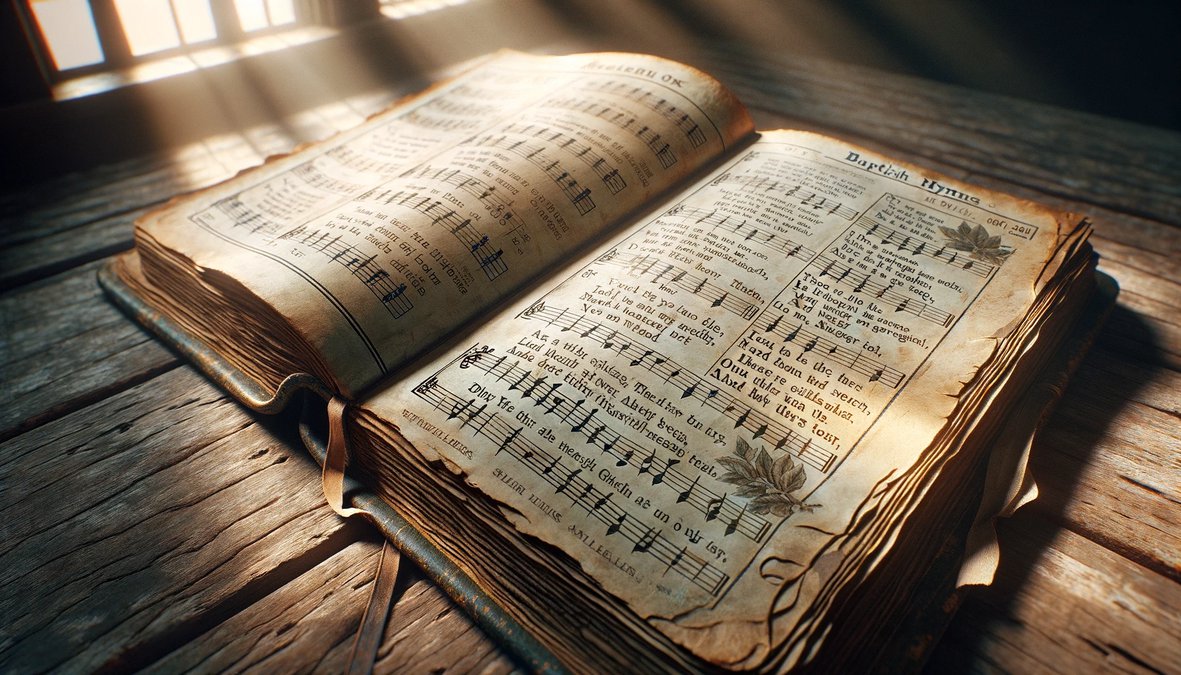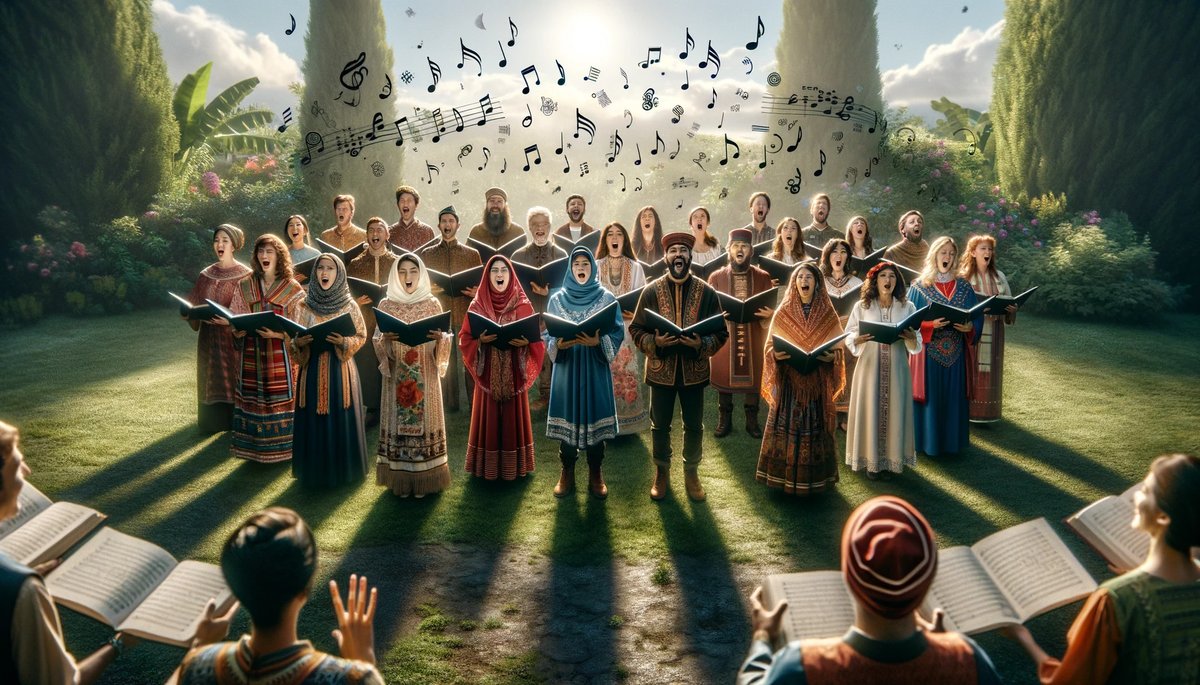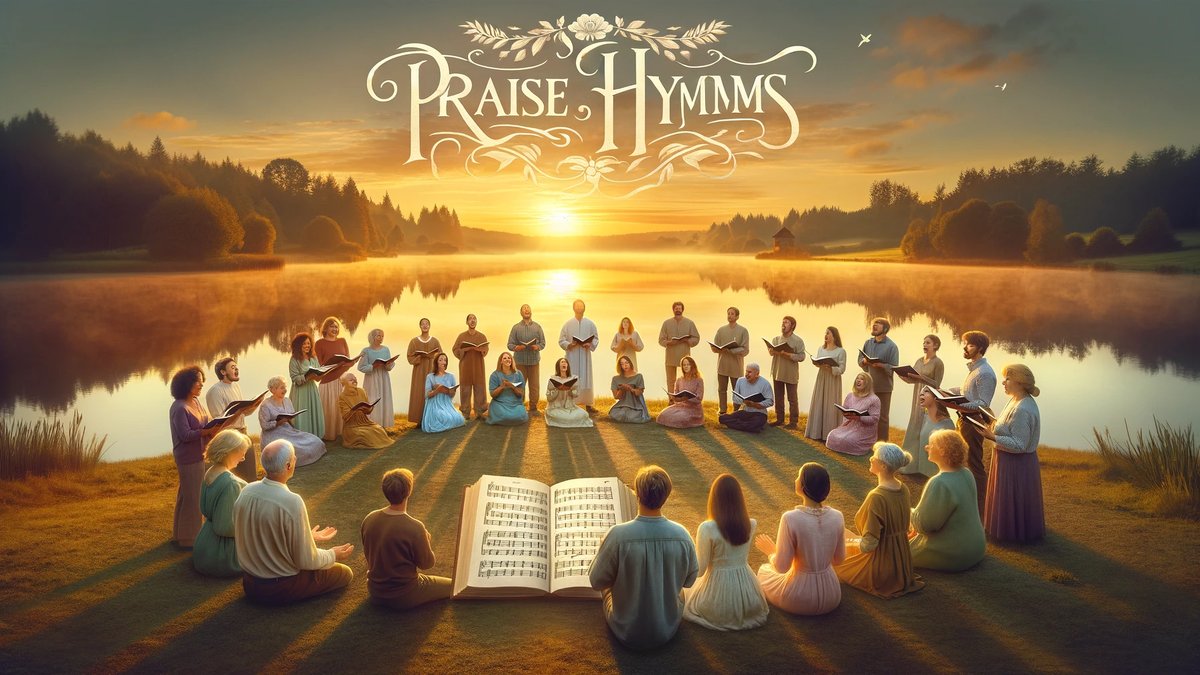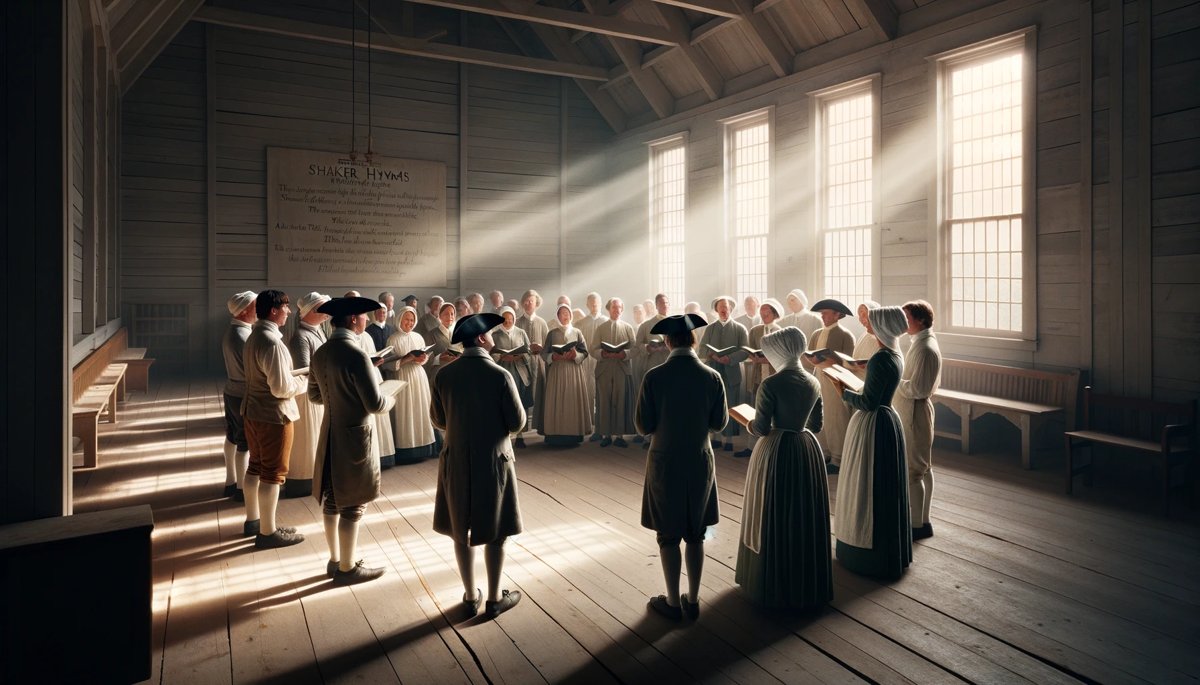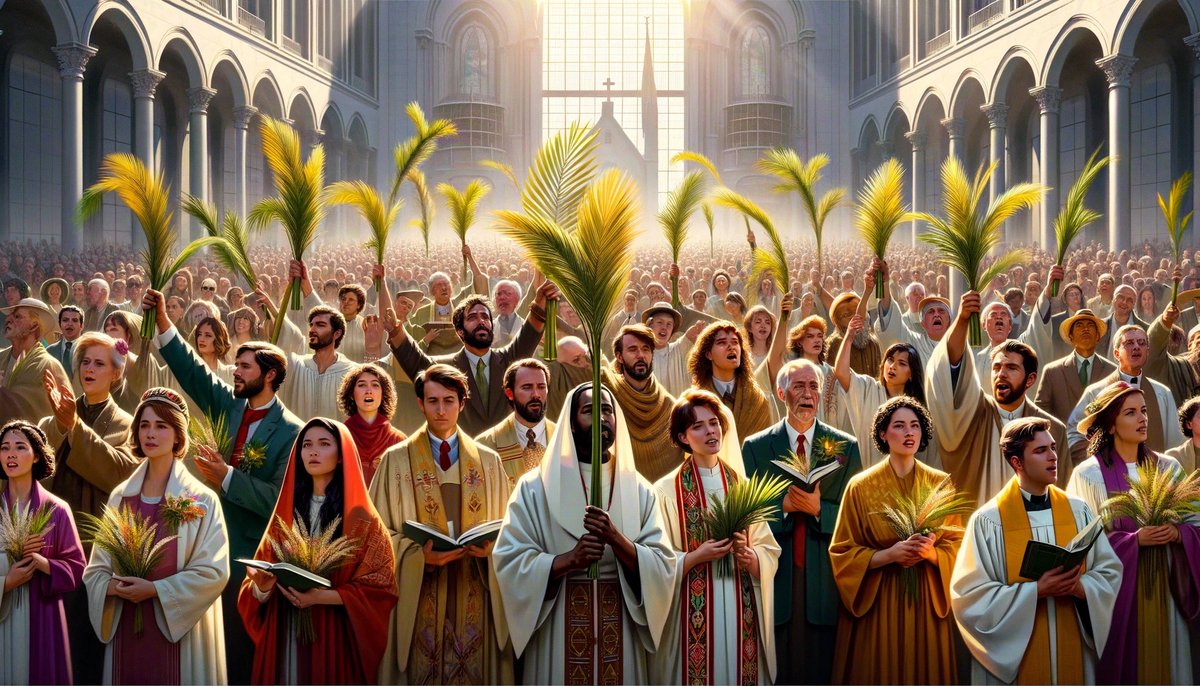Home>Arts and Culture>What Are Some Of The Popular Gaither Hymns From The 70s
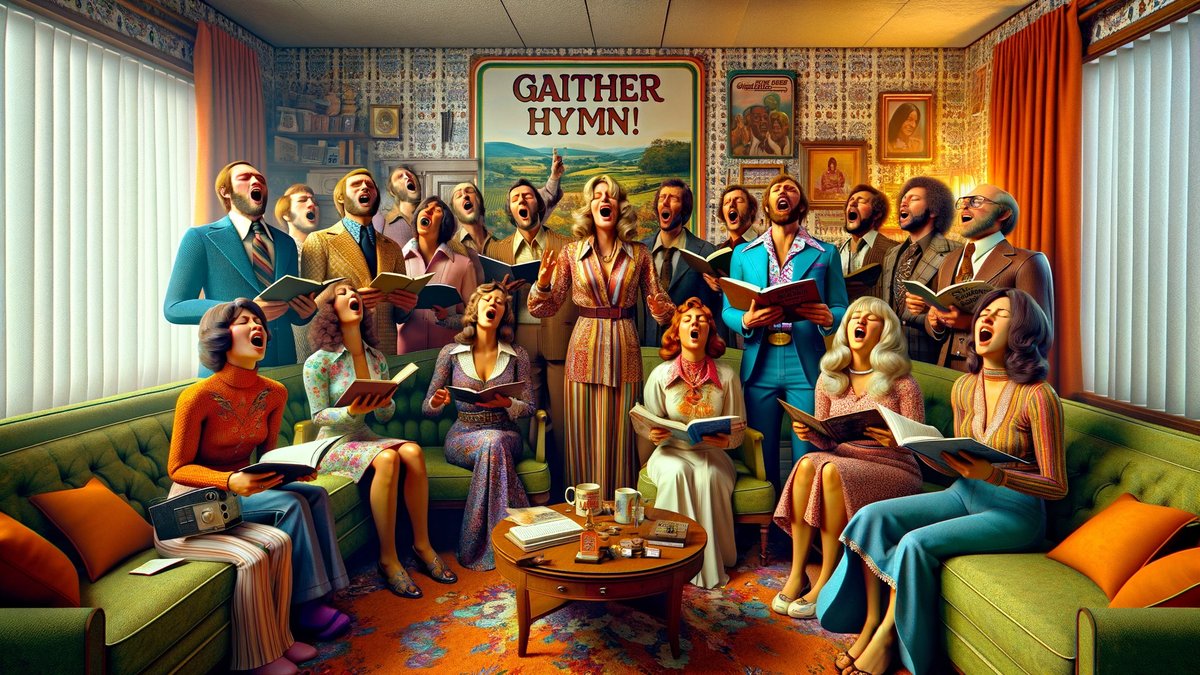

Arts and Culture
What Are Some Of The Popular Gaither Hymns From The 70s
Published: March 7, 2024
Ericka Andersen, an editor at Christian.net, expertly merges digital strategy with content creation, focusing on faith and societal issues. Her communication skills enhance the platform's engaging narratives, fostering meaningful dialogue on belief's impact on society.
Discover the timeless and beloved Gaither hymns from the 70s that have left a lasting impact on arts and culture. Explore the iconic music that continues to inspire and uplift.
(Many of the links in this article redirect to a specific reviewed product. Your purchase of these products through affiliate links helps to generate commission for Christian.net, at no extra cost. Learn more)
Table of Contents
Introduction
The 1970s were a significant time for gospel music, and one of the most influential figures during this era was Bill Gaither. His compositions and performances have left an indelible mark on the world of Christian music. The Gaither Hymns from the 70s continue to resonate with audiences today, carrying messages of hope, faith, and love. In this article, we will explore some of the most popular Gaither hymns from the 70s and delve into the impact they have had on the world of religious music. So, let's take a journey back in time to discover the timeless melodies and powerful lyrics that continue to inspire and uplift listeners around the world.
Read more: What Are Some Popular Black Gospel Hymns
The Influence of Gaither Hymns in the 70s
-
Revolutionizing Gospel Music: The 1970s marked a pivotal period in the evolution of gospel music, and Bill Gaither played a significant role in shaping its trajectory. His compositions and performances brought a fresh perspective to the genre, infusing it with contemporary elements while staying true to its traditional roots.
-
Crossing Denominational Boundaries: Gaither's hymns transcended denominational barriers, resonating with Christians across various faith traditions. His music became a unifying force, bringing together believers from different backgrounds under the banner of shared spiritual experiences and beliefs.
-
Emotional Resonance: Gaither's hymns were known for their emotional depth and sincerity. They spoke to the human experience, addressing themes of love, redemption, and the promise of eternal life. This emotional resonance struck a chord with audiences, fostering a deep connection to the music and its message.
-
Legacy of Community Singing: Gaither's hymns were often performed in large gatherings, fostering a sense of community and shared worship experiences. The 70s saw a surge in the popularity of these communal singing events, creating spaces where individuals could come together to express their faith through music.
-
Enduring Impact: The influence of Gaither's hymns from the 70s extends far beyond that decade. Their enduring impact is evidenced by the continued popularity of these songs in churches, concerts, and recordings. They have become timeless classics, cherished by multiple generations of listeners.
-
Innovation in Arrangement and Composition: Gaither's approach to hymn composition and arrangement was innovative for its time. He skillfully blended traditional hymnody with contemporary musical elements, creating a sound that was both familiar and refreshing. This innovative approach set a new standard for gospel music in the 70s and beyond.
-
Cultural Relevance: Gaither's hymns reflected the cultural and social landscape of the 70s, addressing the hopes, struggles, and aspirations of the era. This cultural relevance allowed his music to resonate with listeners on a profound level, making it a soundtrack for the times.
The influence of Gaither hymns in the 70s was profound, shaping the landscape of gospel music and leaving an indelible mark on the hearts and minds of believers. These hymns continue to inspire and uplift, carrying forward a legacy of faith, hope, and unity.
"Because He Lives"
"Because He Lives" is a timeless hymn penned by Bill and Gloria Gaither in 1971. Its profound message of hope and assurance has resonated with countless listeners over the years. The song's lyrics reflect on the significance of Christ's resurrection and the impact it has on the lives of believers. The powerful refrain, "Because He lives, I can face tomorrow; Because He lives, all fear is gone; Because I know He holds the future, And life is worth the living, just because He lives," encapsulates the essence of the Christian faith – the unwavering hope and confidence that stems from the resurrection of Jesus Christ. The hymn's melody, coupled with its uplifting lyrics, has made it a staple in worship services, concerts, and recordings, solidifying its place as one of the most beloved Gaither hymns from the 70s. "Because He Lives" continues to inspire and comfort individuals, serving as a reminder of the enduring impact of Christ's resurrection on the lives of believers.
"He Touched Me"
"He Touched Me" stands as a testament to the profound impact of divine touch and healing. Composed by Bill Gaither in 1963, this hymn gained widespread popularity in the 70s, resonating with audiences through its poignant lyrics and soul-stirring melody. The song captures the essence of encountering the transformative power of Jesus' touch, bringing solace, restoration, and spiritual renewal. Its evocative verses, "Shackled by a heavy burden, 'Neath a load of guilt and shame; Then the hand of Jesus touched me, And now I am no longer the same," vividly depict the profound liberation and inner transformation that stems from experiencing the touch of the divine. "He Touched Me" has become a cherished anthem of faith, serving as a source of comfort and inspiration for individuals navigating life's challenges. Its enduring resonance and timeless message continue to uplift hearts and reaffirm the profound impact of encountering the touch of Jesus.
"The King Is Coming"
"The King Is Coming" is a powerful hymn that captures the anticipation and glory of the second coming of Jesus Christ. Composed by Bill Gaither and Gloria Gaither in 1970, this timeless anthem has resonated with believers, offering a vivid portrayal of the triumphant return of the Savior. The song's lyrics paint a majestic picture of Christ's imminent arrival, evoking a sense of awe and reverence. Lines such as, "The marketplace is empty, No more traffic in the streets, All the builders' tools are silent, No more time to harvest wheat," vividly depict the transformative impact of Christ's return on the world. The hymn's soaring chorus, "The King is coming, the King is coming, I just heard the trumpet sounding, and now His face I see," captures the exultant joy and anticipation of beholding the glorious return of the King.
"The King Is Coming" has been embraced as a declaration of faith and a proclamation of the hope that is anchored in the promise of Christ's return. Its majestic melody and profound lyrics have made it a staple in worship services, inspiring believers to fix their gaze on the eternal hope that awaits them. The hymn's portrayal of the triumphant return of Jesus Christ serves as a source of encouragement and assurance, reminding listeners of the ultimate fulfillment of God's redemptive plan. "The King Is Coming" continues to resonate with audiences, serving as a poignant reminder of the profound significance of Christ's second coming and the hope it instills in the hearts of believers.
Read more: What Are The Most Popular Hymns At Funerals
"Something Beautiful"
"Something Beautiful" stands as a testament to the transformative power of God's love and grace. Composed by Bill and Gloria Gaither in 1971, this hymn has left an indelible mark on the world of Christian music. Its poignant lyrics and uplifting melody have resonated with audiences, offering a message of hope and renewal. The song captures the essence of God's redemptive work, portraying the beauty that emerges from His transformative touch. Lines such as, "All I had to offer Him was brokenness and strife, But He made something beautiful of my life," encapsulate the profound truth of God's ability to bring beauty out of brokenness and to transform lives with His love. "Something Beautiful" has become a cherished anthem of faith, serving as a source of comfort and inspiration for individuals navigating life's challenges. Its enduring resonance and timeless message continue to uplift hearts and reaffirm the profound impact of encountering the touch of God's love and grace.
"The Longer I Serve Him"
"The Longer I Serve Him" is a poignant hymn that reflects the deepening relationship and commitment to serving Jesus Christ. Composed by William J. Gaither in 1969, this timeless anthem has resonated with believers, offering a heartfelt expression of devotion and faithfulness. The song's lyrics eloquently convey the transformative journey of serving Christ, portraying the enduring joy and fulfillment found in a life dedicated to Him. Lines such as, "The longer I serve Him, the sweeter He grows; The more that I love Him, more love He bestows," encapsulate the profound truth of the deepening spiritual connection and the abundant blessings that accompany a life of service to Christ. "The Longer I Serve Him" has become a cherished declaration of unwavering faith, inspiring believers to embrace the enduring rewards of a life devoted to Christ. Its timeless message continues to resonate with audiences, serving as a poignant reminder of the profound joy and fulfillment found in serving the Lord.
Conclusion
The Gaither hymns from the 70s have left an indelible mark on the world of Christian music, shaping the landscape of gospel music and inspiring generations of believers. These timeless melodies and powerful lyrics continue to resonate with audiences, carrying messages of hope, faith, and love. From the profound assurance of "Because He Lives" to the transformative power of "Something Beautiful," each hymn has served as a source of comfort, inspiration, and spiritual renewal for countless individuals. The enduring impact of these hymns is a testament to the profound influence of Bill Gaither and his contributions to the realm of religious music. As these hymns continue to be cherished and celebrated, they stand as a testament to the enduring power of faith, unity, and the timeless message of the gospel.
